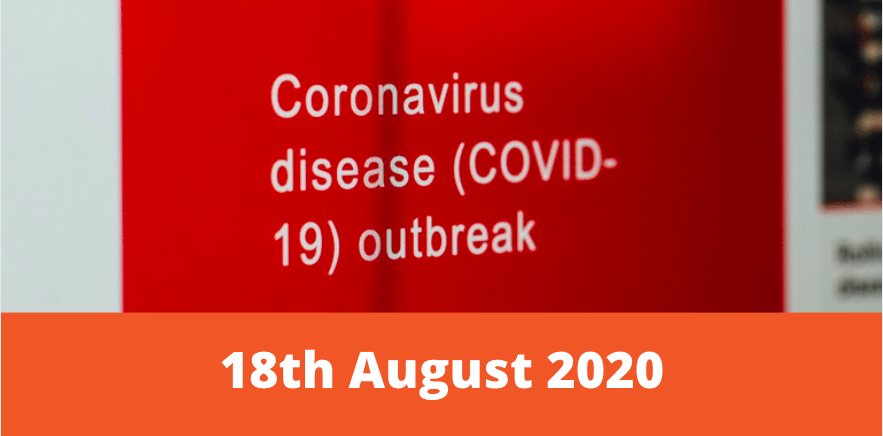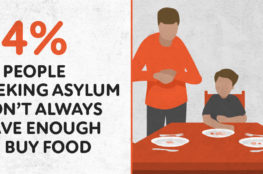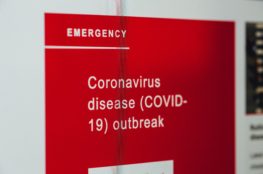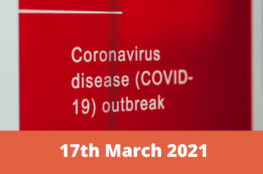Our weekly summary of ongoing advocacy initiatives, interesting surveys and research, government developments and useful resources. Contact us if you’d like to get this update directly into your inbox!
1. Ongoing advocacy initiatives
Channel crossings
Over the last few weeks, there has been a marked increase in hostile media coverage of people making the perilous journeys across the Channel. Exploitative coverage, alongside violent and hateful language from political commentators has fuelled a toxic atmosphere that has targeted people seeking sanctuary in the UK.
Last weekend, we joined forces with the Joint Council for the Welfare of Immigrants and 100 other civil society organisations to voice our concerns about the government’s approach so far, and call for urgent action to establish safe and legal routes to sanctuary.
For those wanting to take further action:
- JCWI and City of Sanctuary have organised ‘Write to MP’ actions;
- You can complain about exploitative media coverage to OFCOM via Help Refugees;
- Follow the #ChangeTheStory hashtag and help promote positive stories about migration.
Calls for an extension of free school meals to families with No Recourse to Public Funds
An open letter coordinated by Children’s Society has been sent to the Education Secretary, Gavin Williamson MP, calling for a permanent extension of free school meals to families with NRPF in England.
You can support the campaign by emailing the Education Secretary here.
2. Research and Reports
Groundswell Research – call for those with NRPF conditions
Groundswell are currently undertaking research to understand the impacts of Covid-19 on the lives of people experiencing homelessness, and are particularly interested in hearing directly from people with no recourse to public funds (NRPF) who are homeless or living in precarious situations, such as sofa surfing.
The project aims to directly include the voices of people experiencing homelessness in the national and local decision-making processes: through telephone interviews, text messages and text and audio reports from ‘mobile reporters’. If you are and have an NRPF condition, you can have your say confidentially and anonymously, by texting 07476552438. The costs of texts will be reimbursed. More information for participants can be viewed here.
Freedom from Torture survey on asylum process, decision making and appeals
Freedom From Torture are continuing to collect evidence via their survey for their monthly report on the asylum process, asylum decision making and appeals.
They are currently collecting evidence for both June and July. The evidence gathered will be collated, anonymised and analysed by UK Lesbian and Gay Immigration Group, before being presented as themes and patterns, and will not be attributed to any one organisation or individual. Information will be shared verbally with the Home Office through the National Asylum Stakeholder decision making subgroup.
Please contact sreynolds[at]freedomfromtorture.org to get involved or for more information.
Independent Chief Inspector of Borders and Immigration inspection of asylum casework- deadline extended to 31st August 2020
The deadline for the ICIBI’s ongoing inspection into asylum casework has recently been extended to the 31st August 2020. Find out more about the inspection here.
Research project into advice for asylum seekers and refugees in Wales
The Hillary Rodham Clinton School of Law, Swansea University, is conducting a research project into access to advice for asylum seekers and refugees in Wales. This research project proposes to contribute to the body of research on advice deserts by exploring the extent of the gaps in legal and general advice provision for asylum seekers and refugees in Swansea and South Wales.
Researchers are inviting participants to complete a web-based survey which is accessible here. Please see the information sheet attached providing an overview of what participation in this research project will mean. The survey will require approximately 10 minutes to complete. You can contact the researchers directly via email at e.j.borland[at]swansea.ac.uk or h.j.bussicott[at]swansea.ac.uk.
3. Home Office and Government Developments
Evictions from asylum accommodation due to begin for newly granted refugees
The Home Office has indicated that people who have received positive decisions on their asylum claim will now start to receive cessation notices. This follows the stay on evictions from asylum accommodation at the beginning of the pandemic. As far as we are aware, move-on letters will start being sent out from the 11th August, and those who receive these letters will have 28 days to move into alternative housing arrangements and access welfare support.
This only applies to newly granted refugees in asylum accommodation in England (the procedure in Scotland, Wales and Northern Ireland will start at a later date). Further details can be found in a helpful update on the Refugee Council’s website.
We remain concerned that newly granted refugees will be left at risk of homelessness. Years of research from organisations across the sector has proven that 28 days is not enough time for newly granted refugees to access alternative housing or support, and that many are forced to rely on families, friends and charities to avoid street homelessness.
Evicting people into homelessness is particularly worrying whilst Covid-19 remains a serious threat to personal and public health. We maintain that newly granted refugees must not be evicted from asylum accommodation until they have secured accommodation and welfare support.
4. Resources and what we’ve been reading …
Lift the Ban Activism Pack launched!
The Lift The Ban campaign has published an updated local activism pack, full of tips and suggestions for Lift The Ban campaigners on how to help build momentum to win the right to work for people seeking asylum.
This follows the publication of a new report on how giving people seeking asylum the right to work is just plain common sense. This pack will provide inspiration for campaigners across the UK to win the argument for change.
The pack provides guidance to local campaigners on:
- Meeting your MP, winning their backing for reform and asking them to act in support of the campaign;
- Ways to involve local decision makers in your campaigning – whether that’s your local authority, regional leaders or devolved administration;
- How to best engage your local media and generate coverage for the campaign;
- Getting others involved – through petitions, creating social media content or staging events.
The activism pack also takes account of the radically changed circumstances for campaigners as a result of Covid-19, and includes practical guidance on delivering impactful local campaigning within the current restrictions. There are also brilliant examples from Lift The Ban campaigners to provide some ideas and show what can be achieved.
As well as the digital copy to download, there are also printed copies available. To request some – or for more information on the campaign and how you can get involved – see lifttheban.co.uk or email lifttheban[at]asylummatters.org.
Upcoming opportunity: Activism Pack Webinar, Thursday 27th August (11 – 12pm)
And to boost your campaigning efforts, we will be holding a webinar on Thursday 27 August between 11am-12pm to talk coalition members through the content in the activism pack.
As the co-secretariat for the campaign, the Asylum Matters and Refugee Action teams will share tactics for engaging with MPs, local decision-makers, and the media, and answer any questions you have about undertaking campaigning activity in your local area.
Please email lifttheban[at]asylummatters.org to sign up, and we will send you information on joining the webinar.
Stop the Traffik launch social media campaigns to raise awareness of workers’ rights in the UK
Stop the Traffik launched two geo-targeted social media campaigns on 4th August which aim to raise awareness of workers’ rights and provide support options for people who are experiencing or at risk of exploitation at work.
The first campaign, in both Spanish and Portuguese, provides information targeted at Latin American women working in cleaning, hospitality and domestic work, who research has revealed are at an increased risk of labour exploitation and various forms of labour rights violations since Covid-19.
The second campaign focuses on domestic servitude, raising awareness of the rights and support for Filipino domestic workers, among workers themselves and also among the wider community. You can see the campaign for the community in Filipino and English as well as the campaign for domestic workers in Filipino and English. Please share among your networks or with anyone who might find the information useful.
Updated ASAP factsheet on Asylum Support for Survivors of Domestic Abuse
ASAP factsheet 18 – Asylum Support for Survivors of Domestic Abuse has been updated and is available ASAP’s website here. The factsheet now contains an overview of the practical steps that need to be taken to secure a Home Office funded refuge placement through s98/s95 and s4 support.
5. Jobs across the sector
Right to Remain are recruiting three paid Organisers to work with These Walls Must Fall to help build the campaign to end immigration detention: one in Manchester, one in Liverpool, and one in West Yorkshire. The posts are part time (14 hours a week) and they are particularly interested in applications from people with direct experience of the immigration system.
The closing date for applications: midnight on 23 August 2020
Scottish Refugee Council are recruiting for two policy officers to join their team. More details about the roles can be found here, and applications are due midnight on 26 August 2020.




